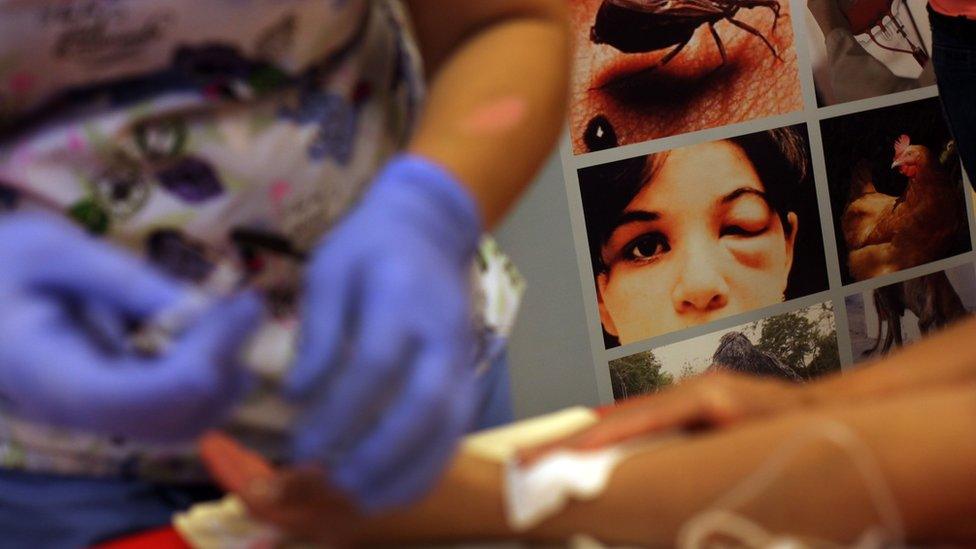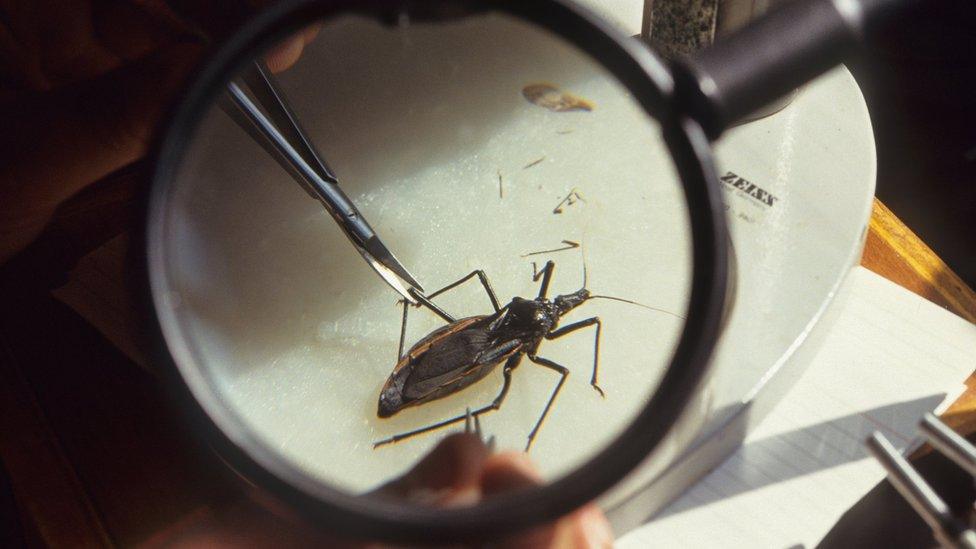Dundee University awarded £4.4m to target Chagas disease
- Published

The disease is found mainly in Central and South America, but has started to spread further
Dundee researchers have been awarded £4.4m in funding for work on a disease that can can kill victims without them ever knowing they were infected.
Chagas disease is caused by a parasite and is estimated to affect millions of people worldwide.
Symptoms of the disease tend to be similar to a mild cold or fever, which means people often dismiss them.
Scientists at the University of Dundee will use the money to develop pre-clinical drug trials for the disease.
The university, along with GSK, received the funding from the Wellcome Trust.
Current treatments for Chagas disease are limited in effectiveness and have significant side effects.
Reports of the disease are rare in the UK, but millions of people are affected in Central and South America.
Head of translational parasitology at Dundee's School of Life Sciences, Dr Manu De Rycker, said the disease could cause life- threatening damage to the heart, oesophagus and colon.
"Decades after being infected, a large number of people - around 30% - will go on to develop the disease," he said.
"It is the classic definition of a silent killer and the symptoms that a person has become infected tend to be only mild and similar to a mild cold or fever, meaning that people just tend to dismiss them."
The World Health Organization estimates that between six and seven million people are infected with the disease, which is found mainly in Central and South America, but has slowly started to travel around the world due to large-scale population movements.

The disease is carried by parasites on triatomine bugs
Tim Miles, portfolio leader in global health at GSK, said: "This funding from the Wellcome Trust will enable the development of urgently needed medicines with the potential to offer shorter, simpler and safer treatment options for people living with Chagas disease.
"We are proud to partner with the University of Dundee in this effort to change the trajectory of Chagas disease and positively impact the health of millions of people."
The disease is caused by the trypanosoma cruzi parasite and is carried by triatomine bugs, which typically live in the walls or roofs of poorly constructed homes.
The bugs awake at night and bite exposed areas of skin and defecate nearby. The infection is spread when the person unwittingly smears the faeces into an open wound, or their eyes or mouth. It can later be spread by blood transfusions and from mother to child.
The University of Dundee's Professor Kevin Read, co-leader of the project, said: "It is a very challenging problem from a drug discovery perspective as the parasites are intracellular, disseminate throughout the body and are difficult to kill.
"Chagas disease has the potential to affect many more millions of people in the years to come so the urgent need to develop new treatments cannot be overstated."